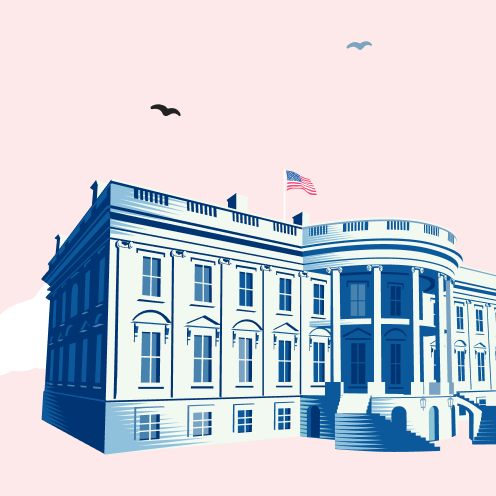Shorouk Express

Sign up for the daily Inside Washington email for exclusive US coverage and analysis sent to your inbox
Get our free Inside Washington email
Get our free Inside Washington email
As he announced widespread tariffs on Wednesday, President Donald Trump claimed that the Great Depression would never have happened had the U.S. stuck to its tariff policy — even though experts say the tariffs worsened the economy at the time.
Trump indicated trouble began after an income tax was launched in 1913. Before that the U.S. relied on tariffs.
“From 1789 to 1913, we were a tariff-backed nation, and the United States was proportionately the wealthiest it has ever been,” the president argued.
The U.S. was “collecting so much money, so fast, we didn’t know what to do with it,” claimed Trump.
“Then, in 1913, for reasons unknown to mankind, they established the income tax so citizens, rather than foreign countries, would start paying the money necessary to run our government,” he said.
Tariffs imposed on foreign goods aren’t paid by foreign nations as Trump often falsely claims.
U.S. tariffs imposed on imported goods are paid to the American government by companies in the U.S. importing the goods. Much, if not all, of that extra cost is passed onto consumers in the form of higher purchase prices.
Trump claimed Wednesday that the good times in the U.S. “all came to a very abrupt end with the Great Depression” in 1929.
“It would have never happened if they had stayed with the tariff policy; it would have been a much different story,” Trump insisted. “They tried to bring back tariffs to save our country, but it was gone. It was gone. It was too late, nothing could have been done.”
Trump laid out the false argument as he announced a 10 percent tariff on all countries, a higher reciprocal tariff on about 60 countries, and a 25 percent tariff on foreign-made cars.

As for the time before the Depression, Republicans put forward an income tax amendment in 1913 as farmers struggled, and Democrats pushed for the measure, and the 16th Amendment instituting taxes became law.
Congress passed the Underwood-Simmons Tariff Act around the same time, which lowered tax rates as Democrats pushed for free trade. Tariffs, however, were raised once more under the leadership of Republican President Warren Harding.
The Smoot-Hawley Tariff Act of 1930 raised tariffs on thousands of goods, and is widely seen as exacerbating the economic downward spiral. Smoot-Hawley “remains a watchword for the perils of protectionism,” notes the State Department’s Office of the Historian.
“Smoot-Hawley did nothing to foster cooperation among nations in either the economic or political realm during a perilous era in international relations,” the site states. “It quickly became a symbol of the ‘beggar-thy-neighbor’ policies of the 1930s. Such policies, which were adopted by many countries during this time, contributed to a drastic contraction of international trade.”
The act is viewed as having worsened the economic decline, which lasted between 1929 and 1939, as it undermined international trade and drastically reduced the nation’s income from products.
Trump argued Wednesday that it “took years and years to get out of that Depression, far longer than even FDR had that office right over there for a long period of time.”
The depression ended in 1939 amid the beginning of the Second World War, and President Franklin D. Roosevelt remained in office from 1933 until 1945, becoming the only president to serve more than two terms.
Speaking in the Rose Garden of his extensive tariffs, Trump pointed to the system of ramps built for Roosevelt, who used a wheelchair.
“Every time you walk up, you think of him. And he did a great job in many ways, but [the Great Depression] lasted long beyond his terms, as you know. But it’s not too late,” claimed Trump.
The Depression ended six years before FDR left office.
The president’s comments come as he has refused to rule out seeking a constitutionally barred third term, which is prevented under the 22nd Amendment, which was passed in 1951, following Roosevelt’s four terms in office.











